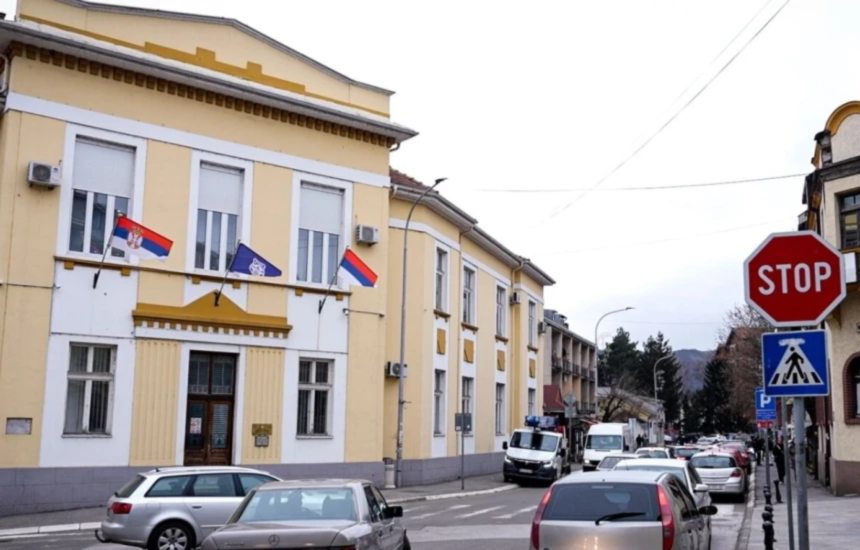Rashkë, Kosovo – Employees of Serbian parallel structures in northern Kosovo continue their work, either remotely from their homes or by traveling to a nearby Serbian border town, despite Kosovo authorities shutting down their offices for operating illegally under Serbia’s system.
One such worker, Milosh (name changed for anonymity), shared his experience with Radio Free Europe/Radio Liberty (RFE/RL). Following the closure of his workplace by Kosovo authorities, he now travels once or twice a week across the border, where Serbian authorities have relocated their institutions. On other days, he works remotely from his home in Kosovo.
Milosh requested anonymity, citing fears of being charged with “document forgery,” a characterization often used by Kosovo’s Prosecution Office for work conducted in Serbian institutions within Kosovo.
Offices Relocated to Serbia
In December, RFE/RL observed several individuals, including Milosh, traveling to a Serbian border town to work. These offices, often set up in black containers near border points like Bërnjak, Jarinjë, and Merdare, serve residents seeking Serbian-issued certificates, bank-related documents, and other administrative services.
In September 2024, Serbian President Aleksandar Vučić announced plans to establish “modern offices” on the Serbian side of the border and promised increased financial support to cover workers’ travel expenses.
Kosovo’s Ongoing Closures
Kosovo authorities began closing Serbian-run institutions in January 2024, deeming them illegal. The closures have affected various administrative bodies in northern Kosovo, including tax offices, urban planning departments, and social welfare centers.
In January 2025, the Kosovo Tax Administration office in Mitrovica North was shut down. Similar closures in 2024 targeted Serbian post office branches, pension funds, and other entities operating under Serbia’s jurisdiction.
Serbian Response
The Serbian government continues to pay these employees, with around 5,800 individuals reportedly affected by the closures, according to Vučić. He has criticized the actions as a “seizure of Serbian property and occupation.”
Impact on Local Communities
Kosovo authorities, through the Privatization Agency, have seized several properties in the north, leasing them to Albanian entrepreneurs. However, local Serbs have largely boycotted these businesses.
The agency also took control of the Rajska Banja resort in Banjskë, a Serbian government-funded project, and halted construction of a Serbian-funded university in Mitrovica North.
Long-Term Plans Uncertain
Despite inquiries from RFE/RL, Serbia’s Office for Kosovo has not disclosed any long-term strategies for addressing the closures.







